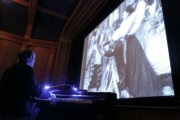WASHINGTON — The postseason puts additional pressure on managers to make the correct call at every high leverage point in games, when every mistake is magnified. But before those choices can be made, the coaching staff must come together to decide on the best 25 players to help them win in the particular structure that five- and seven-game series create.
The Washington Nationals are fortunate to be almost entirely healthy entering October, making many of their decisions relatively easy. But there are a few more complicated options up for debate. Let’s start with the locks to make the roster, beginning with the pitching staff.
Starting pitchers: Stephen Strasburg (1), Jordan Zimmermann (2), Doug Fister (3), Gio Gonzalez (4).
Despite some mid-season inconsistencies and a short stint on the disabled list, Gonzalez turned in a solid season that saw him strike out better than a batter per inning, and he finished looking as strong as he has all year. In his final seven starts, Gonzalez was 4-1 (with the Nats going 5-2 in those starts), posting a 2.36 ERA, a .191 batting average against and 41 strikeouts to just nine walks. He was Washington’s top starter in the 2012 postseason and will not be riding the bench this year.
Relief pitchers: Drew Storen (5), Tyler Clippard (6), Matt Thornton (7), Craig Stammen (8).
Honestly, it’s hard to call anyone beyond these four a total lock. But it would be hard to imagine a postseason roster that did not include Tanner Roark (9) as a long-man/emergency starter after his tremendous breakout year. Two pitchers — lefty Jerry Blevins (10) and righty Aaron Barrett (11) — have been dominant against same-side batters, making them good postseason candidate. (Blevins held lefties to a .153/.202/.217 AVG/OBP/SLG triple slash line while righties slashed just .190/.277/.253 against Barrett).
Normally, you would expect either 11 or 12 pitchers on a postseason roster. We will guess the latter, making the final decision a choice between lefty Ross Detwiler and enigmatic, deposed closer Rafael Soriano. After a tremendous first half, Soriano entered the break with 22 saves in 24 attempts, a 0.97 ERA and just a .153 opponents batting average. But his second half was a disaster. He blew five of 15 save opportunities, posting a dreadful 6.48 ERA and allowing opponents to post an All-Star caliber .303/.359/.505 line against him. With the clout from his 2012 Game 4 start, along with his left-handedness and ability to throw multiple innings, we’re giving the nod to Detwiler (12).
Starting lineup: Denard Span (13), Anthony Rendon (14), Jayson Werth (15), Adam LaRoche (16), Ian Desmond (17), Bryce Harper (18), Wilson Ramos (19), Asdrubal Cabrera (20).
Let’s be clear: Ryan Zimmerman (21) will find his way into this lineup some way, somehow. We’re just not quite sure how Matt Williams will tinker with the lineup that has worked so well for him in Zimmerman’s absence.
Bench: Jose Lobaton (22), Danny Espinosa (23).
Yes, Espinosa is a lock. He is the only other player on the list who can play shortstop in the event that something happens to Desmond. And while he should never take another at-bat left-handed (.183/.241/.291 with a 39 percent K rate), he is Washington’s most capable bench bat vs. righties. Yes, that’s right. Espinosa is hitting .301/.374/.485 from the other side of the plate, better than Kevin Frandsen (24) and far better than Scott Hairston (.250/.293/.327). Espinosa is also an above-average baserunner, making his versatility indispensable.
Frandsen, as we noted, will also make it, though with Zimmerman’s return, he’s more expendable. He’s come up with some big hits and can play multiple positions around the infield and outfield, if need be. But he’s also posted an OPS+ of just 69 (meaning he produced less than 70 percent of the offense of an average major leaguer per plate appearance), even worse than his anemic numbers with Philadelphia last year.
If Nate Schierholtz had done anything to prove his viability as a left-handed bat off the bench, he’d be on this team. Tyler Moore has the proven pop, and quietly drove in the two runs that won Game 1 in 2012, but again, with Zimmerman back, it’s hard to see where he fits in. Steven Souza had a terrific year at Triple-A and preserved Jordan Zimmermann’s no-hitter with his outstanding catch for the final out of the regular season, but hasn’t enjoyed much success at the plate at the big-league level.
So we’ll go out on a limb for our final prediction. As Dave Roberts reminded us in 2004, and Billy Hamilton last year, speed can be a game-changer in close, well-pitched contests. The Nationals have one player with great speed who can also play terrific outfield defense and has enough pop that you wouldn’t mind him staying in a game to get an at-bat. That’s Michael Taylor (25), the player Baseball America just rated as the best power-speed prospect in the game. Taylor has the ability to win a game late on the base paths or save it in the outfield. That’s exactly the kind of guy you want at the end of your bench in October.
Follow @WTOP and @WTOPSports on Twitter and WTOP on Facebook.







